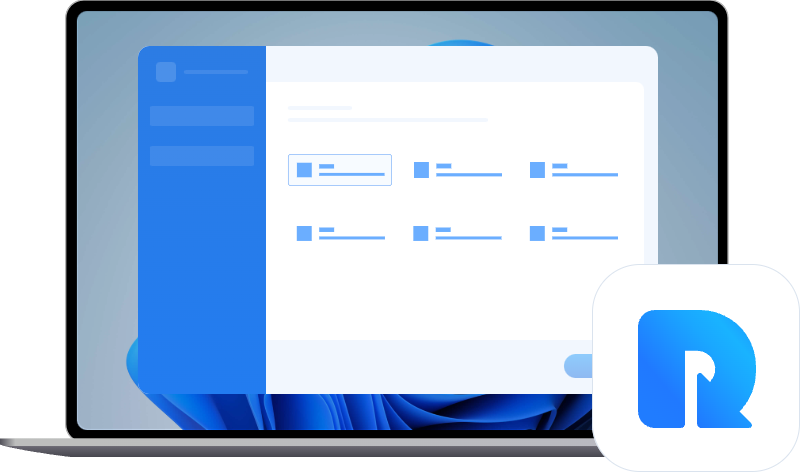Comprehensive Guide: Troubleshooting and Fixing Computer Random Freezes
This comprehensive guide provides a deep dive into the reasons behind computer random freezes and offers step-by-step solutions. Discover the advanced features of MyRecover for effective data recovery. Detailed methods, specific steps, and FAQs ensure a thorough understanding of troubleshooting.
Imagine this scenario: you're in the zone, working on an important task, and suddenly, your computer decides to take an unplanned break by freezing. If you've experienced this frustrating phenomenon, you're not alone. In this comprehensive guide, we not only explore the perplexing world of computer freezes but also provide detailed step-by-step solutions to thaw your digital chill.
Computer Randomly Freezes: An Overview
Understanding the reasons behind your computer randomly freezing is crucial before diving into solutions. It's like being a detective, trying to identify the culprit causing the disruption. The freeze may result from various factors, including hardware issues, software conflicts, or even overheating. Let's unravel the mystery and take a closer look at each possible cause.
Why Does Your Computer Randomly Freeze?
Have you ever wondered why your computer randomly freezes, bringing your tasks to an abrupt halt? Several factors contribute to this issue. It could be due to overburdened system resources, software conflicts, or even hardware issues. Understanding the root cause is crucial to implementing effective solutions.
MyRecover: Your Ally in Troublesome Times
Before we delve into the methods, let's introduce a key player in the troubleshooting game – MyRecover. This data recovery tool is not just another player; it's the MVP. MyRecover offers features that elevate it above the rest. Let's explore these features and get acquainted with the detailed steps for effective data recovery.
MyRecover Features
User-Friendly Interface: MyRecover boasts a user-friendly interface, making it accessible to users of all levels. You don't need to be a tech expert to navigate through the recovery process.
Comprehensive Recovery Options: Whether it's accidental deletions, formatted drives, or system crashes, MyRecover has you covered. Its comprehensive recovery options ensure that you can retrieve data lost under various circumstances.
Compatibility Across Operating Systems: MyRecover is a versatile tool that works seamlessly across different operating systems. Whether you're using Windows, macOS, or Linux, MyRecover has your back.
MyRecover Recovery Steps
Installation: Download and install MyRecover on your computer. The installation process is straightforward, and the tool takes up minimal space on your system.
Launch MyRecover: Once installed, launch MyRecover. The user-friendly interface will guide you through the recovery process.
Select Storage Device: Identify the storage device from which you want to recover data. MyRecover supports a wide range of storage devices, including hard drives, SSDs, USB drives, and more.
Scan for Lost Data: Initiate a scan to identify lost or deleted data on the selected storage device. MyRecover employs advanced algorithms to ensure a thorough scan.
Preview and Recover: After the scan is complete, preview the recoverable files. Select the files you want to recover and proceed with the recovery process. MyRecover allows you to preview files before restoring them.
Now that we're acquainted with our troubleshooting ally, let's explore the detailed methods to tackle the issue of computer random freezes.
Methods to Thaw the Freeze
Method 1: Check for Overheating
Ventilation Assessment: Inspect your computer's ventilation system. Ensure that air can flow freely through vents and fans. Blocked vents can lead to overheating.
Dust Removal: Computers tend to accumulate dust over time, hindering proper airflow. Regularly clean dust from vents, fans, and other components using compressed air.
Temperature Monitoring: Install temperature monitoring software to keep tabs on your computer's internal temperature. Elevated temperatures can be a sign of impending freezes.
Method 2: Update Your Drivers
Identify Outdated Drivers: Check for outdated drivers in your system. Device Manager or third-party driver update tools can help identify drivers in need of an update.
Visit Manufacturer Websites: Visit the official websites of your hardware manufacturers. Download the latest driver updates for your graphics card, chipset, and other essential components.
Scheduled Updates: Make driver updates a regular part of your computer maintenance routine. Set up scheduled updates to ensure your drivers stay current.
Method 3: Scan for Malware
Install Reliable Antivirus Software: Choose and install reputable antivirus software. Ensure it provides real-time protection and regular scanning features.
Full System Scan: Perform a full system scan to identify and eliminate any malware or viruses. Schedule regular scans to keep your system secure.
Browser Extensions Check: Be cautious with browser extensions. Some may carry malware. Review and remove any suspicious extensions to prevent potential threats.
Method 4: Manage Startup Programs
Access Startup Programs: Open the Task Manager and navigate to the "Startup" tab. Here, you'll find a list of programs that launch at startup.
Disable Non-Essential Programs: Identify non-essential programs and disable them from launching at startup. This streamlines the boot-up process and reduces the chance of freezes.
Method 5: Verify Hardware Issues
RAM Check: Run a memory diagnostic tool to check for RAM issues. Faulty RAM can lead to freezes. Replace or upgrade faulty modules.
Hard Drive Health Check: Use disk health monitoring tools to assess the condition of your hard drive. Address any issues promptly, such as bad sectors or impending failures.
Peripheral Inspection: Check external peripherals for issues. Faulty devices connected to your computer can cause freezes. Replace or repair malfunctioning peripherals.
Method 6: Optimize Your System
Disk Cleanup: Perform a disk cleanup to remove unnecessary files and free up disk space. This improves overall system performance.
Storage Organization: Organize your storage by categorizing files and folders. This not only helps in finding data quickly but also enhances system efficiency.
Defragment Your Hard Drive: Regularly defragment your hard drive to optimize data storage. This improves data access speed and reduces the likelihood of freezes.
Conclusion
Navigating the realm of computer random freezes requires a strategic approach. Armed with the knowledge of potential causes and detailed methods to address them, you can thaw the freeze and ensure a smoother computing experience. MyRecover stands as a reliable ally in the data recovery journey, providing advanced features and user-friendly steps for effective restoration.
FAQs
Q: Can overheating really cause my computer to freeze?
A: Yes, overheating can lead to freezes by affecting the performance of crucial components. Proper ventilation and temperature monitoring are essential.
Q: How often should I update my drivers?
A: Regularly update your drivers, ideally as part of your monthly computer maintenance routine, to ensure optimal performance.
Q: Is MyRecover compatible with macOS?
A: Yes, MyRecover is designed to work seamlessly with macOS, providing comprehensive data recovery solutions.
Q: Can malware affect my computer's performance even if I have antivirus software?
A: Yes, malware can still impact your system. Regular scans and cautious browsing habits are essential for maintaining a secure environment.
Q: What is the importance of disk defragmentation?
A: Disk defragmentation optimizes data storage, improving access speed and overall system efficiency. Regular defragmentation reduces the risk of freezes.


